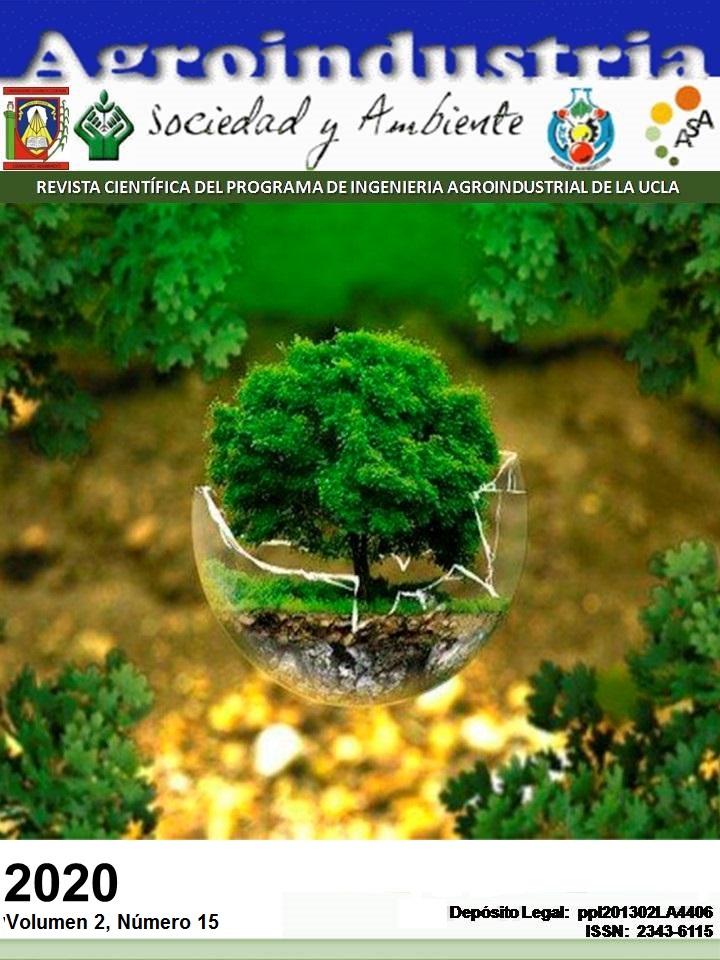Evaluation of aerogenerator for the use of sustainable energy in an ecuadorian educational center
Keywords:
energy saving, pollution, environmental impact, sustainabilityAbstract
The use of fossil and hydroelectric energy has led to the deterioration of natural resources due to problems of pollution and deterioration of water basins, which is why clean energy systems such as solar and wind power should be adopted to make sustainable use of these resources in higher education systems where the environmental component is a transversal axis of the curriculum, Awareness of the use of this type of clean energy should be raised. In this regard, the University of the Armed Forces of Ecuador (ESPE) designed and evaluated a prototype wind turbine to provide energy in the areas of internal security, which would serve as a showcase to demonstrate the advantages and applicability of this type of energy in real situations. The aim of the wind turbine prototype was to provide reliable energy to the most remote and vulnerable areas or to systems that need constant energy in case of emergency due to the absence of the conventional distribution network. The results found show that the use of the wind turbine under the climatic conditions of Ecuador for domestic purposes, does not allow substantial energy savings, so it is recommended the construction of wind systems on a larger scale which translates into significant savings in economic terms and reducing the production of CO2, but the low cost of electricity in the region prevents the massification of wind energy systems, despite the environmental advantages and safe use of them, likewise the investment for the implementation and maintenance of wind systems, is expensive when compared with conventional systems.
Downloads
References
Cunha E.A, Siqueira J.A.C., Nogueira C.E.C., Diniz A.M. (2019). Aspectos históricos da energia eólica no brasil e no mundo. Revista Brasileira de Energias Renováveis, 8(4); 689-697. http://dx.doi.org/10.5380/rber.v8i4.65759
Dai J., Yang, X., Wen L. (2018). Development of wind power industry in China: A comprehensive assessment. Renewable and Sustainable Energy Reviews, 97: 156-164. https://doi.org/10.1016/j.rser.2018.08.044
Dawn S., Tiwari, P.K., Goswami A.K. (2019). An approach for long term economic operations of competitive power market by optimal combined scheduling of wind turbines and FACTS controllers. Energy, 181: 709-723.https://doi.org/10.1016/j.esr.2019.01.002
De la Torre J., Rubio-Varas M. (2018). Electricidad nuclear y procesos de aprendizaje: el papel de Westinghouse y de General Electric en la experiencia española (c. 1955-1973). Revista de Historia Industrial. Economía y Empresa, 27(74): 107-136. https://doi.org/10.1344/rhi.v27i74.19843
Gómez L.M.J., Prins N.M.A., López M.D.R. (2016). Valoración de opción real en proyectos de generación de energía eólica en Colombia. Revista ESPACIOS, 37 (26).
Kheshti M., Ding L., Nayeripour M., Wang X., Terzija V. (2019). Active power support of wind turbines for grid frequency events using a reliable power reference scheme. Renewable energy, 139: 1241-1254. https://doi.org/10.1016/j.renene.2019.03.016
López C.A., Gago-Cortés, C., Longarela-Ares, Á. (2019). Energías renovables y economía verde: la inversión en protección ambiental en el sector eléctrico. Revista Raites, 5(11):1-26.
Marín A., Hernández E., Flores J. (2016). Metodología para el análisis de datos cualitativos en investigaciones orientadas al aprovechamiento de fuentes renovables de energía. Revista Arbitrada Interdisciplinaria Koinonía, 1(1): 60-75.
Omer, A.M. (2018). Renewable Energy Technologies for Future and Sustainable Development. International Journal of IC Engines and Gas Turbines, 4(2): 11-29.
Ortiz, F., Cáceres P. (2018). Generación de Energía Eólica por la Empresa Blue Power & Energy SA. Revista Senderos Universitarios, (03): 36-44.
Palacios Á.G.P., Rodríguez S.A.I., Fuentes E.D.V., Quinto V.M.C., Párraga N.L.M., Gavilanes F.E.Z. (2019). Producción de energía eólica en Ecuador. Ciencia Digital, 3(3): 22-32. https://doi.org/10.33262/cienciadigital.v3i3.610
Pérez R., Osal W. (2019). Gases de efecto invernadero por generación de electricidad en usuarios no residenciales de Venezuela 2006-2017. Publicaciones en Ciencias y Tecnología, 13(1): 30-40. http://doi.org/10.13140/RG.2.2.15226.64965
Ren H., Ortega J., Casimis D.W. (2017). Review Of Operating Reserves And Day-Ahead Unit Commitment Considering Variable Renewable Energies: International Experience. IEEE Latin America Transactions, 15(11): 2126-2136. https://doi.org/10.1109/TLA.2017.8070418
Ruiz A., Mitre E.H. (2017). Desarrollo de un sistema de gestión de eficiencia y ahorro energético para las instituciones del sector público. Revista de Iniciación Científica, 3(1): 70-76.
Sánchez-García D., Bienvenido-Huertas D., Tristancho M., Rubio-Bellido C. (2019). Adaptive comfort control implemented model (ACCIM) for energy consumption predictions in dwellings under current and future climate conditions: A case study located Spain. Energies, 12(8): 1498.https://doi.org/10.3390/en12081498
Sánchez-García D., Rubio-Bellido C., Marrero-Meléndez M., Guevara-García F.J., Canivell J. (2017). El control adaptativo en instalaciones existentes y su potencial en el contexto del cambio climático. Hábitat Sustentable, 7(2), 6-17. https://doi.org/10.22320/07190700.2017.07.02.01
Segura Madrigal M.A., Andrade Castañeda H.J., Mojica Sánchez C.A. (2019). Estructura, composición florística y almacenamiento de carbono en bosques nativos del páramo de Anaime, Tolima, Colombia. Ciência Florestal, 29(1): 157-168. https://doi.org/10.5902/1980509826551
Sigarchian S. G., Malmquist A., Martin V. (2018). The choice of operating strategy for a complex polygeneration system: A case study for a residential building in Italy. Energy Conversion and Management, 163: 278-291.https://doi.org/10.1016/j.enconman.2018.02.066
Wang Y.H., Walter R.K., White C., Farr H., Ruttenberg B.I. (2019). Assessment of surface wind datasets for estimating offshore wind energy along the Central California Coast. Renewable energy, 133: 343-353.https://doi.org/10.1016/j.renene.2018.10.008
Okundamiya M.S., Ogujor E.A. (2017). Power electronics technology: enabling large-scale injection of wind energy into the grid. Advances in Energy Research, 27: 123-148.
Elistratov V., Kudryasheva I. (2016). Methodology for parameters selection and evaluation the effectiveness of decentralized energy supply systems based on renewable energy sources. ARPN Journal of engineering and applied sciences, 11(5), 3509-3512.
Wiser R., Jenni K., Seel J., Baker E., Hand M., Lantz E., Smith A. (2016). Expert elicitation survey on future wind energy costs. Nature Energy, 1(10), 1-8. https://doi.org/10.1038/nenergy.2016.135
Yousefi H., Roumi S., Tabasi S., Hamlehdar M. (2018). Economic and air pollution effects of city council legislations on renewable energy utilisation in Tehran. International Journal of Ambient Energy, 39(6), 626-631. https://doi.org/10.1080/01430750.2017.1324819
Ramírez, W.A.A. (2020). Energías alternativas una vía para el desarrollo sustentable. Revista AMBIENTELLANIA, 3(1): 1-10.
Published
How to Cite
Issue
Section




